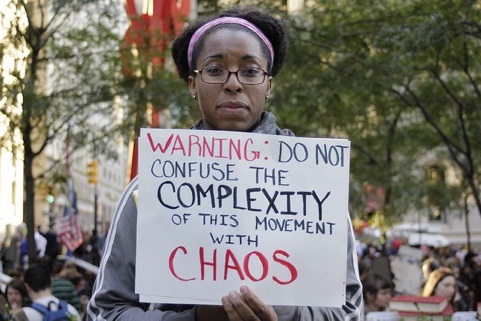These are the kind of poems that are helpful harvests from circles, and other forms of social interaction. They are a way of creating visibility and form for the sometimes easy-to-lose flow and wisdom that is conversation and listening. I was particularly flattered last week at an event in Ottawa. I offered a poem after a check-in circle that had 30 people. The focus was on Partnership in the Workplace. This was a circle in which people were placing symbols of partnership into the center. A new friend, Sylvie, called me a “keynote listener,” which speaks to the practice of catching gems. Thanks Sylvie!
It was good to catch a few words and images and feed them back to the group in the instantaneousness of the moment. I don’t find the words last that long beyond the event, unless you were there. Yet, very powerful in the moment, and longer for those who were there. Sometimes I’ll revise them a bit after to help with an “external” audience, but mostly leave them as they are.
Here’s a few simple principles that I practice in creating dialogue poems as a form of harvest. Below that, the poem from Ottawa. If you search “poem” on this site you’ll find a few other poems and contexts. Here’s a link to one from an event in Arnprior, Ontario last year. And a link to Tim Merry’s site, my first teacher and friend in this form.
1. String the Pearls — look for the gem in what is being said. Not all of the words. Just a few, or a few phrases.
2. Notice Where People Laugh or Cry — those are points of energy in the group. Catch some of that, in the direct words that are spoken.
3. Rhyme It — some of mine turn out quite rhymed. Some are silly. Some are playful. I don’t hold myself to particular pattern, though that could be quite nice. Some have very few rhymes. I just put the words into a kind of narrative.
4. Have Fun — for me, my better offerings are when I’m having fun with it. Not focused on right or wrong. It is an offering, and art of an offering that serves the group. Through the medium of the one listening well.
5. String Mid-Sentence to a New Sentence — they aren’t all complete thoughts neatly tucked in one sentence. I like stringing the words of one person to the words of another in the same sentence.
6. Welcome the Flow of It — its intuitive. I sometimes feel that the words are writing me. Just flowing through. And of course, they are, given that it is the group that is speaking them. In this spirit, welcome images too. Emotions.
7. Experiment with Cadence — mine tend to be a straight-up poem. But those who rap often have a style in their cadence. Building energy. Or a rhythm and beat to the sentences. This is a thing that I want to experiment with more.
8. It OK to Make Up Words — I do. In the spirit of creating a rhyme. Gives me a bit more freedom in the rhyming of things.
9. Help People to See Themselves — in the words and images. I feel it as though I’m offering a voice from the whole of the group, yet strung together from the contributions of each person in it.
10. Have a Good Ending — this is one that Tim taught me. End it on a good note. A powerful thought. A challenge. An invitation. Sometimes I notice what someone says and recognize it as good ending material. I’ll save it for then rather than leaving it in the middle of the poem.
Symbols of Partnership: What Could Partnership Also Be?
From Opening Circle, 11/18/11; Ottawa, Ontario
Developing Partnerships in the Workplace
Tenneson Woolf
Show us your stuff, rough and tough,
short, clear, enough
to feel a rich space.
Be crisp in full-hearted welcome,
on the spot where it is hot.
I work in visual art and long-term care.
As wingnut. As dandelion.
I’m creator of invitation. Holder of space,
animating life.
In my growing edge of stepping forward
to welcome rechargings and openings,
partnered in prison, unlocking the heart
in song, dawning the age of aquarius,
even with nervous heart.
Transforming like a butterfly
and flying to the center
offering partnership, among friends.
Recalling lovely memories
and gifts from Newfoundland.
I just need to look in the mirror
to the learning of others reflected back to me.
Through the lens, I see more or me,
the woven collection of colors
irresistibly drawn to the circle.
We have something we want to do together
through points of contact into the center.
When work isn’t work,
the vocation of growing together
is our expression of a star.
This is my little girl.
And I know how to work with her dad,
seeing beings as more than roles.
Responding to different tracks
hoping to find a common time
in the perspective of snails, porcupines, and the butterfly.
In the movement to one number,
how you get there is important.
The sweetness, even in 7-8 minutes
meeting the artist in you, the artist in me.
Appreciating how we go together
in a subtle wheel of chi,
feeling with the eyes of heart
and seeds that welcome sun, air, water.
Scissors, when together, work well.
Turtles ground and slow us to connection.
Peeking in. Peeking out. Movement.
The space of middle matters.
After 40 years, we cha cha and fox trot.
We hold each other in our arms
cha, cha, cha-cha-cha.
Forged with hammer and love in sweet bond.
This poem of the personal.
If…. If…
we maintain a course when the off-course comes.
Paddle to the sea,
sending carvings with a simple request:
Put me back in the water.
Return me to the flow
through the gift of invisible hands.
This circle is sacred.
What if we welcomed flourishing from here?
In this lanyard, I remember anti-poverty.
The challenges. The learning.
That comes from all the circulating in no-sleep.
Faith. Trust. Charity.
Burning from the flame of love.
To the rose quartz of my heart
that unfolds in sharing
of insights from 40 years ago,
the basics that we now know,
living and practicing traditions into this now.
Not too many more works.
Just seamlessness.
Just movement.
That’s our business.





